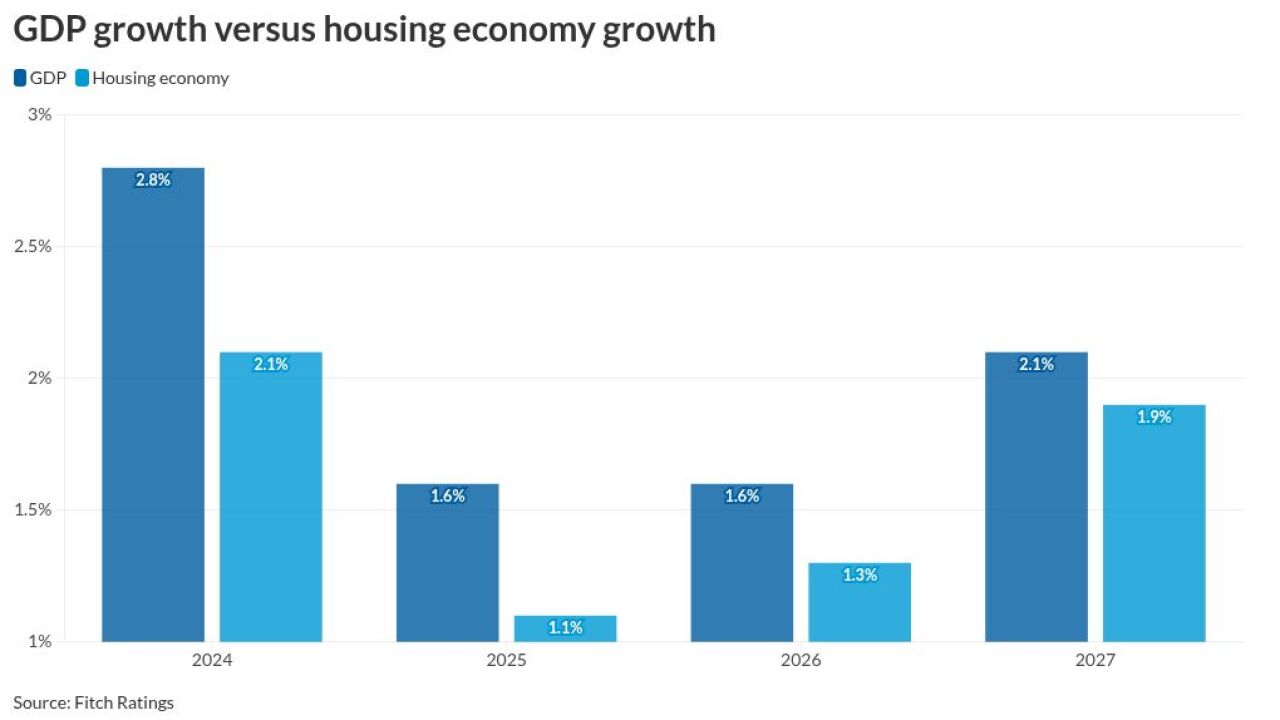As the CDO market ushers in 2008, many industry players are hoping that the gloomy conditions that plagued 2007 will remain in the past. But with recession fears looming over the structured credit markets, and rating agencies tweaking their methodologies, new issuance will continue to move slowly, at least for the first half of the year, market participants said.
"Everything is on hold right now," said a CDO market participant, adding that the mass firings of late 2007 have left bankers focused on trying to find new jobs instead of pushing new deals. "The only guys who are currently buying are the [investors] in the secondary market, who are getting this stuff at a huge discount. It is impossible to pitch an ABS CDO right now. The guys who would be doing this are the same guys who have to apologize for the five or six deals they did last year that went to the toilet."
New issuance was down across the board for U.S. ABS CDOs in 2007. Total U.S. ABS CDO volume came in at approximately $267 billion for 2007, a significant decline from the $350.1 billion of proceeds the banks made in 2006, according to Thomson Financial data.
"What we are really going through here is an entire change in methodology. And until we really get on firm footing, issuance will be muted pretty much across asset classes," said Brian Yelvington, macro strategist at independent credit research firm CreditSights. But while slow to come back, especially on the ABS CDO side, the market is not completely dead, he said. "Issuance is not just going to grind to a halt - that would have significant economic implications given how much we depend on asset securitization even outside of just ABS."
Grading On The Curve
Despite the significant write-downs on underlying collateral and the massive layoffs in the sector, Citigroup Global Markets claimed the top U.S. ABS CDO manager position on Thomson Financial's 2007 league tables. The firm had approximately $35.7 billion in proceeds. Although the business Citi brought in was enough to move it to first place from second place in 2006, its proceeds were down from $36.6 billion last year.
Merrill Lynch had an even larger drop, pulling in a meager $33 billion in 2007 from $50 billion in 2006. The dip pushed the bank into second place from its first place ranking in 2006.
Wachovia Securities and Deutsche Bank took the third and fourth positions on the rankings, respectively. But while Wachovia moved up one notch to take third place with $21.1 billion in 2007, the bank's proceeds had dropped from $24.2 billion in 2006. Deutsche Bank took a hit not only in position, when it dropped one notch to fourth place, but also in volume. The bank brought in $17.9 billion in 2007, a plunge from $29.3 billion in issuance for 2006.
Interestingly, the only major leap came from JPMorgan Securities, which moved into fifth place from 11th place in 2006. The bank pulled in $17 billion, a small increase from the $15.3 billion it made the prior year.
Adding to investor wariness about the sector has been the rise in litigation stemming from defaulted and liquidated CDOs that were hit by subprime delinquencies. For instance, late last year, Deutsche Bank, the trustee for the recently liquidated $985 million Sagittarius CDO I, filed a suit to determine whether it was the investors or the CDO's credit insurer, MBIA, that had the right to Sagittarius's remaining payments.
That is just one of the many legal battles the market will see in 2008, said the CDO market participant. "The lawyers are pretty swamped reading the indentures on how to proceed during a liquidation event because it is something they have never done and some of the structures are pretty ambiguous."
Hope In CLOs
The sector with the most promise in 2008 undisputedly is CLOs, market participants said. Although the vast number of downgrades sent CLO investors running from the sector late last summer, previously tested methodologies, market vigilance and the more traditionally conservative ratings will support future issuance, participants said.
However, the market took a crippling hit in 4Q07 with a paltry 17 deals totaling $12.1 million compared with 66 deals totaling $33.9 million in 4Q06, according to data provider Dealogic.
Total issuance for 2007 dropped to 160 deals totaling $87.8 billion from 202 deals totaling $99.2 billion in 2006.
CLO issuance might still be hindered by an uptick in the default rate that could cause a ripple effect on the sector, sources said.
"The important thing that we learned from the subprime debacle is that the assumptions that we put on deals have been far too aggressive," CreditSights' Yelvington said. "The other thing we discovered pretty quickly is that these assets, once you slap a high rating on them, have really permeated our economy. Thus, you can take a modest uptick in defaults and that becomes magnified because the instruments themselves are so widespread and widely used."
CDO sectors that have remained unaffected by risk concerns include CDOs of middle-market loans and emerging market CDOs, the CDO market participant said.
However, on the synthetic CDO side, analysts from Wachovia expect fewer managed synthetic CDOs and shorter-dated transactions in 2008, since long-dated managed transactions are tougher to sell right now. Analysts also predicted a trend toward static transactions to continue in 2008, since they are easier to hedge.
Structurally, ABS CDO and CLO transactions that do get done will feature the back to basics approach to underwriting seen in the second half of 2007.
"Derivative Fitch does expect to see more vanilla structures," said Mia Koo, managing director at Derivative Fitch. "Investors want to see more simple, transparent structures, as well as standardization of documents in these structures."
Furthermore, there are only a couple of reasons to do an esoteric type deal, Yelvington said, adding that one of the motivations behind structuring an esoteric transaction is to achieve a rating that is outside the scope of what the instrument would normally garner. But investors that were previously interested in the boosted rating have scaled back, and there is market skepticism toward the rating agencies for tweaking their rating methodology, so the push for these deals is no longer there, Yelvington said.
"It would be like pumping gas in the middle of a fire," he said.
(c) 2008 Asset Securitization Report and SourceMedia, Inc. All Rights Reserved.
http://www.asreport.com http://www.sourcemedia.com





